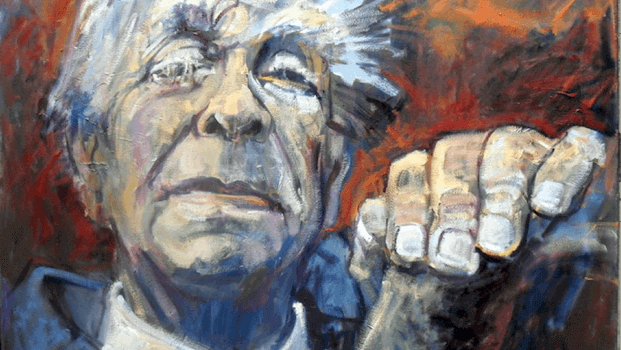We could fill out many pages making a selection of the best phrases by Jorge Luis Borges. Its clarity and charm have left us wonderful reflections, which always surprise us when we abandon ourselves to the temptation to read his works.
This Argentine had a name that, in itself, was already special: Jorge Francisco Isidoro Luis Borges Acevedo, was born around the same time as the twentieth century, in Buenos Aires, the most interesting thing about his abundant work is that he resists. any Borges classification is Borges, period. There are no schools or doctrines that contain it completely.
“There are defeats that have more dignity than victory. ” – Jorge Luis Borges-
One of the great enigmas of literature is the fact that this writer, read and loved all over the world, has never won the Nobel Prize, although his name has always been among the favorites, it has always been said that this is due to their political positions, categorized as conservative by many in the world.
In the strictly literary sense, few have attained the universality of his ideas, the perfection of his language and the originality of his arguments, not to mention his poetry, which is always among the most exalted, in homage to this writer and as a child. literary festival for readers, here are five fascinating phrases by Jorge Luis Borges.
Jorge Luis Borges makes time one of the raw materials of his work. The past, present and future disfilate before him and inspire him with this wonderful phrase: “The future is as irrevocable as yesterday’s rigidity. There’s nothing, that’s not a silent letter of eternal and inexcusable writing, whose book is time?
Defines the time as a book, in which each page continues the previous one and determines the next one. The present is not, as many claim. We are the past moving towards a future that it also describes yesterday.
If there’s one thing that characterizes Borges, it’s the refined, intelligent humor that turned irony into art. This is reflected in this beautiful and energetic phrase: “We all walk towards anonymity, only the mediocre ones arrive a little earlier. “
Actually, we’re all moving toward oblivion. No matter how many achievements are achieved, time erases the names of its authors, those who do not perform transcendent actions or works get caught up in this oblivion before, but the others are also not immune: no matter how successful a success, there is always someone who overcomes it.
This is one of Jorge Luis Borges’s most classic phrases on politics: “For me democracy is an abuse of statistics. And by the way, I don’t think it’s worth it, do you think that to solve a mathematical or aesthetic problem, should you consult most people?
With his usual humor, Borges speaks to us here about the fragile support for democracy: the will of the majority, which reflects an uncomfortable truth: majorities need not be more right in principle than minorities, it is simply a matter of statistics that is necessary.
“The truth should not be confused with the opinion of the majority. -Jean Cocteau-
Borges reminds us that memory is a dynamic and imprecise reality. As science has also shown, we remember what we want, how we want it, memory is not true to facts.
All this is reflected in one of the most striking phrases of Jorge Luis Borges: “We are our memory, we are this chimeric museum of fickle shapes, this pile of broken mirrors”. It shows us memory as a puzzle, which always needs a lot of pieces and that’s always magical.
Travelling alone, not literally, but figuratively, makes the road meaningless. This is what Borges insists here: “If I started a journey alone, would I spend my life circulating?And you’d get to a customs office, an airport, eventually you get to Ezeiza and you’d be nothing but Ezeiza?
It’s as if he’s telling us that a lonely trip is a way to go nowhere. It is just a transition, a halfway point, but not a goal. Traveling alone down a road is like spinning around without meaning, but never leaving.
Jorge Luis Borges was one of the privileged minds of the contemporary world, his reflections and his clear vocation for truth have left us with a legacy that we have certainly not yet finished valuing in all its extension despite the time elapsed. Borges is one of those writers, who is always worth having nearby, close by: on the bedside table.

